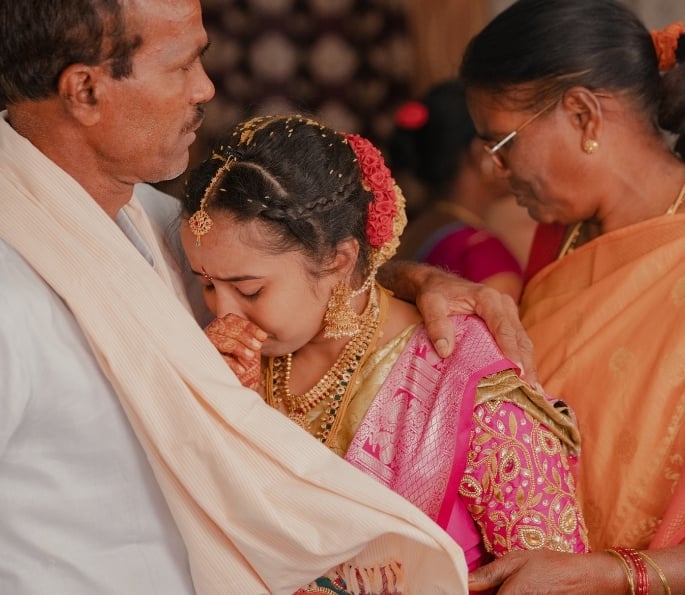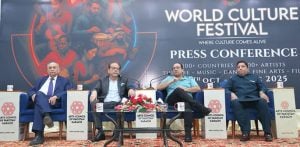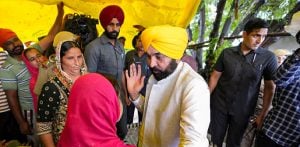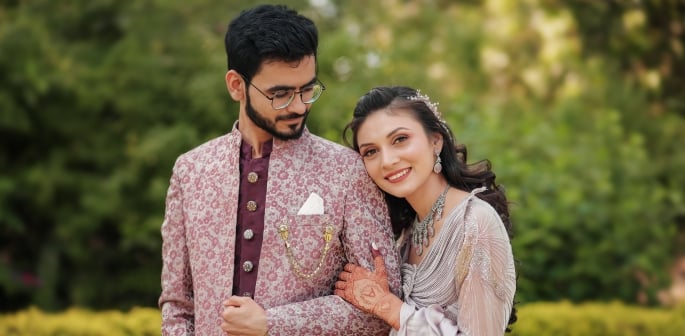Gen Zs are redefining what a life partner should offer.
The idea of marrying your first love can feel like something out of a Bollywood script.
For many South Asian Gen Zs, however, this fantasy intersects with cultural pressure and familial expectations.
What begins as a tender teenage romance can quickly become something heavier, an expectation to make it permanent.
With societal change, evolving values, and mental health at stake, this question is no longer just romantic.
It has social, emotional, and generational consequences that South Asian youth today are navigating in real time.
While older generations may have married early, often through arranged unions, today’s Gen Zs are more cautious.
They’re thinking deeper about what marriage means.
Despite strong emotional ideals, many are prioritising education, career, and self-discovery.
Yet the pressure to commit, especially to the first serious partner, hasn’t disappeared. In fact, in many circles, it remains an unspoken rule.
The experience of Gen Z South Asians today reflects a cultural clash.
Tradition still holds weight, but individual desire is gaining ground. In this shifting landscape, the pressure to marry a first love reveals much more than a personal decision.
It highlights the growing divide between romantic idealism and traditional expectations.
Romantic Idealism in a Changing World
 Gen Zs across the globe are redefining relationships.
Gen Zs across the globe are redefining relationships.
Only 56% of them report having had a teenage romance, a notable drop compared to older generations.
For South Asian Gen Zs, this decline aligns with a greater emphasis on career, education, and personal growth.
Intimacy is being delayed, not dismissed. Yet even with this cautious approach, romantic ideals run high.
Studies show that Indian youth display stronger beliefs in love-based marriages than even their American counterparts.
This mix of caution and idealism creates a unique tension. Many still dream of that perfect love story but want it to unfold on their terms.
This complexity can create internal conflict.
A first love might feel special, but Gen Zs also realise that emotional connection alone may not guarantee a successful long-term partnership.
They are asking bigger questions: Is love enough? Does the timing feel right? Am I doing this for me, or them?
The Weight of Family and Cultural Expectations
 For many South Asians, marriage remains a family milestone rather than a personal decision.
For many South Asians, marriage remains a family milestone rather than a personal decision.
Around 64% of young South Asian adults feel overwhelmed by the expectation to marry young, especially women in their mid-twenties and men by their early thirties.
This often leads to anxiety and emotional strain.
Marriage is still seen as a rite of passage.
In some families, unmarried adults are treated as dependents, regardless of how accomplished they may be.
If you’re dating someone, especially seriously, family members may assume wedding bells will follow soon after.
That pressure can blur the lines between choice and obligation. It’s not just the pressure to marry. It’s who and when.
Many South Asian Gen Zs feel they must turn their first serious relationship into a lifelong commitment, even when they’re not ready.
If the partner doesn’t align with cultural expectations around religion, caste, or family background, the pressure intensifies.
Gendered Deadlines and Social Anxiety
 South Asian women face particular challenges.
South Asian women face particular challenges.
Around 70% report anxiety about marriage timelines, with their aspirations often viewed as secondary to family-approved deadlines.
Pursuing a postgraduate degree or starting a new job may be questioned if marriage hasn’t already been secured.
This ticking clock makes first loves feel urgent.
Women may be subtly (or overtly) encouraged to “secure” the relationship before time runs out.
In contrast, men may experience pressure to be financially stable before committing, adding another layer of stress.
In this environment, first relationships can become loaded with meaning.
What might begin as carefree love can morph into a negotiation between personal growth and cultural duty.
For some, walking away feels like failure, not freedom.
Gen Z’s Shifting Attitudes Towards Marriage
 While 40% of Gen Zs in Southeast Asia still value marriage, a growing number view it as a choice, not a necessity.
While 40% of Gen Zs in Southeast Asia still value marriage, a growing number view it as a choice, not a necessity.
For South Asian Gen Zs, this signals a shift in how relationships are viewed.
More young people are delaying marriage for financial stability, emotional maturity, and personal fulfilment.
Living independently, cohabiting, or dating without an end goal of marriage is becoming more common.
This doesn’t mean Gen Zs reject love, but rather that they want relationships to grow naturally, not under pressure.
They want to choose their partner because it feels right, not because it’s expected.
These shifting attitudes are also a response to reality.
Around 33% of South Asian marriages end within five years, often due to mismatched values or rushed decisions.
Gen Z are paying attention. They don’t want to repeat past mistakes, especially when those mistakes are born from outdated obligations.
First Love or Forever Love?
 Culturally, marrying your first love is still seen as an ideal.
Culturally, marrying your first love is still seen as an ideal.
Families may even romanticise it, assuming early commitment equals lasting compatibility.
But for South Asian Gen Zs, this can be both a dream and a dilemma. There’s emotional comfort in familiar love, but also fear of settling too soon.
If the relationship aligns with family expectations, it may be celebrated. If it doesn’t, introducing the partner can trigger stress.
The risk of rejection, based on caste, class, or religion, can lead some to hide relationships or prematurely end them.
Gen Zs are redefining what a life partner should offer.
Emotional intimacy, mutual respect, and shared goals are valued over status or family compatibility.
This evolution creates tension with traditional matchmaking norms but reflects a broader shift towards conscious, individualised love.
South Asian Gen Zs are caught between cultural legacy and personal autonomy.
The pressure to marry a first love signals how deeply tradition continues to shape modern lives.
At the same time, attitudes are changing.
Romantic relationships are no longer rushed or taken for granted. Many Gen Zs are choosing to delay, rethink, or even reject traditional timelines altogether.
Love is still cherished, but not always at the cost of selfhood. The question isn’t whether South Asian Gen Zs believe in love. They do.
It’s whether they feel free to follow their timeline.
And increasingly, they’re choosing to write their own story, even if it means letting go of their first chapter.






























































